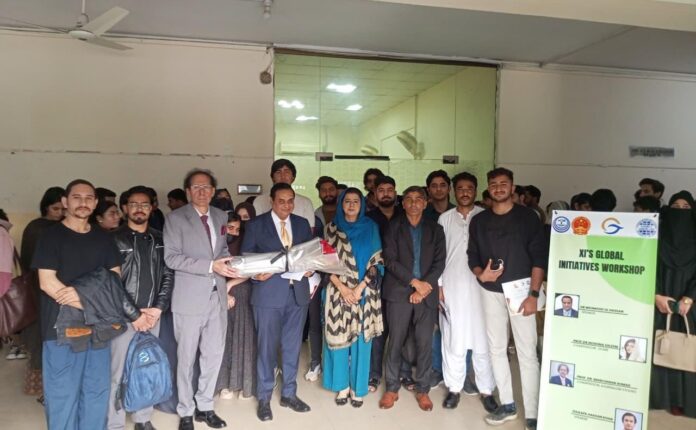A letter received from the Head of UNESCO-UNEVOC, Mr. Friedrich Huebler, addressed to Prof. Dr. Muhammad Mukhtar, Vice Chancellor of the National Skills University Islamabad, states, “The UNESCO-UNEVOC International Centre for TVET extends its appreciation to National Skills University Islamabad for your acceptance to host the institutional Self-Reflection Workshop using the methodology developed by the BILT project.
The Tool will help your institution assess its preparedness to i) identify new qualifications and competencies in a timely and accurate manner, ii) integrate them into appealing and flexible curricula and training regulations, and iii) implement them in innovative training approaches.
The Tool will also guide the creation of a tailored action plan for institutional improvement.
We are convinced that the Self-Reflection Workshop will be beneficial for the institutional development of National Skills University Islamabad. UNESCO-UNEVOC staff will be pleased to support and accompany your institution throughout the process, share our experience, and to learn from you.”
According to UNESCO, the “The Self-Reflection Tool is based on the findings published in UNESCO-UNEVOC’s ‘New qualifications and competencies for future-oriented TVET systems’ (2021), especially the third volume, which examines the perspective of TVET providers on the Three I’s process.” Three Is include “Identifying” new qualifications and competencies emerging in the fast-changing world; “Integrating” these qualifications into curricula and practical training. This necessitates that the TVET center must have dynamic and flexible curricula. The third one is “Implementation” without any delay.
The unique recognition bestowed upon the National Skills University Islamabad, a Pakistani technology institution, is a testament to its alignment with government priorities in technology education. Notably, the university is an active participant in a High-Impact Training Program led by the Federal Secretary, Ministry of Federal Education and Professional Training, Mr. Mohyuddin Ahmad Wani, which embodies the three Is ideas: identifying, integrating, and implementing. The first implementation cycle of this project was recently initiated, marking a significant milestone in our journey.
Academia experts believe National Skills University Islamabad’s fast emergence in the global arena is unique. According to the Vice Chancellor, he and his team have established several international collaborations, bringing this university into the limelight across the country. Prof. Mukhtar particularly thanked the UNESCO Chair on Digitization in TVET and UNEVOC Centre at Shenzhen Polytechnic University (SZPU), China, for supporting this project. Both universities will jointly work to accomplish the common goal of devising strategies for the fast assimilation of contemporary technologies into technology institutions so society can benefit them.







